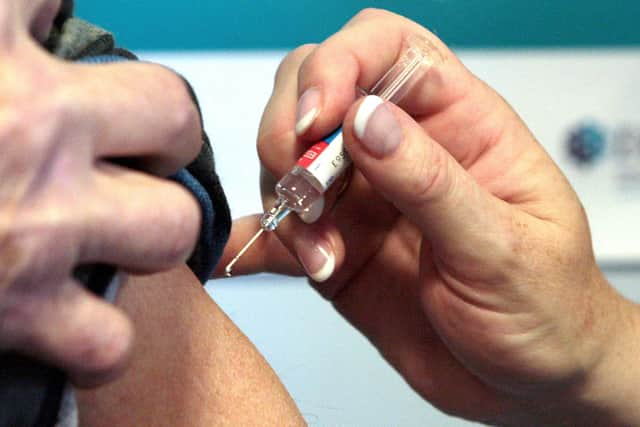UK Government signs deal for 60 million doses of potential coronavirus vaccine - which could be ready by 2021
and live on Freeview channel 276
If the deal – with pharmaceutical giants GlaxoSmithKline (GSK) and Sanofi Pasteur – proves successful, the UK could begin to vaccinate priority groups – such as frontline health and social care workers and those at increased risk from coronavirus – as early as the first half of next year, the Department for Business said.
Human clinical studies of the vaccine will begin in September followed by a phase 3 study in December.
Advertisement
Hide AdAdvertisement
Hide AdThe vaccine produced by GSK and Sanofi, which together have the largest vaccine manufacturing capability in the world, is based on the existing DNA-based technology used to produce Sanofi’s seasonal flu vaccine.


The Government has now signed deals for four different types of potential coronavirus vaccines and a total of 250 million doses.
Business Secretary Alok Sharma said: “Our scientists and researchers are racing to find a safe and effective vaccine at a speed and scale never seen before.
“While this progress is truly remarkable, the fact remains that there are no guarantees.
Advertisement
Hide AdAdvertisement
Hide Ad“In the meantime, it is important that we secure early access to a diverse range of promising vaccine candidates, to increase our chances of finding one that works so we can protect the public and save lives.”
Earlier this month, the Government agreed deals with BioNTech, which is working with Pfizer and Valneva for access to their vaccines.
A further agreement has been signed with AstraZeneca and the University of Oxford.
Kate Bingham, chairwoman of the Government’s Vaccines Taskforce, said: “This diversity of vaccine types is important because we do not yet know which, if any, of the different types of vaccine will prove to generate a safe and protective response to Covid-19.
Advertisement
Hide AdAdvertisement
Hide Ad“Whilst this agreement is very good news, we mustn’t be complacent or over-optimistic.
“The fact remains we may never get a vaccine and, if we do get one, we have to be prepared that it may not be a vaccine which prevents getting the virus, but rather one that reduces symptoms.”